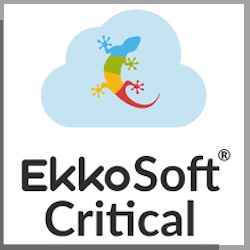Schneider Electric plans to increase its ownership stake in Planon Beheer to 80%. The move reinforces Schneider Electric's focus on smart building management software, sustainability and associated carbon reduction services. Specific financial terms were not disclosed, though Schneider Electric said the deal values Planon at a "mid-single digit revenue multiple."
This is M&A deal number 245 that Sustainable Tech Partner has covered so far in 2024. See all M&A deals involving sustainability, climate tech and green IT services listed here.
The move surfaces the same day that rival Johnson Controls announced a CEO transition while also reinforcing its own focus on smart commercial buildings.
Schneider Electric and Planon: Established Smart Building Software Partners
Schneider Electric has owned a 25% stake in Planon since December 2020. Planon has achieved a 22% compound annual growth rate (CAGR) since 2019, and revenue reached €161 million in 2023.
Assuming Schneider Electric completes the majority acquisition, Planon would tuck into Schneider Electric's Energy Management business.
The acquisition plan surfaced amid Schneider Electric's Q2 2024 earnings announcement. Among the anecdotes to note: Revenue was €9.6 billion in Q2 of 2024, up +7.1% organic and up +4.7% on a reported basis from Q2 of 2023.
Schneider Electric Business Focus, Executive Perspectives
Schneider Electric's overall business generally spans four areas as:
- Buildings, which is experiencing "growing demand for renovation, retrofit and sustainability initiatives related to energy efficiency."
- Data center & networks, which experienced strong double-digit Q2 sales growth within the data center segment.
- Infrastructure, which serves electric utilities.
- Industry, which sells a combination of Energy Management and Industrial Automation.
In each of those areas, Schneider Electric emphasizes "electrification, automation and digitization to
enable a sustainable future."
In a prepared statement about the 1H 2024 financial results, Schneider Electric CEO Peter Herweck said: “I am pleased to see our strong and focused continued execution in H1 2024 resulting in record revenues and strong organic improvement in adjusted EBITA margin, accelerating in Q2. We are uniquely positioned and continue to invest into materializing on the megatrends of Digitization & AI and Energy Transition. Remaining committed to shareholder value creation, we delivered a 10% increase in adjusted Net Income and a growth in Operating Cash Flow of 15%. Alongside the strong financial results, I am particularly proud of the recognition we received in June as the world’s most sustainable company.”
Additional Sustainable IT Services
In a separate move, IT service provider Capgemini developed Energy Command Center -- a platform that leverages Schneider Electric technology and allows organizations to monitor, predict, control and optimize all energy assets.
The overall platform can "monitor, control and optimize all building assets consuming energy including data centers or critical environment rooms," the two companies assert.
The platform combines artificial intelligence (AI), machine learning logics and algorithms, and the Internet of Things (IoT) technologies to "measure and predict various metrics like energy intensity, health of critical assets, critical operations, renewable energy generation, and the overall performance across all energy assets," the duo adds.
Smart Buildings: The Sustainable IT Services Opportunity
Meanwhile, cities and countries worldwide are launching regulations that will force building owners and real estate investors to decarbonize their commercial and residential assets.
Examples include the New York Local Law 97; a large buildings emissions law in Seattle, Washington; and a Future Homes Standard in the United Kingdom.
Demand for building energy management systems appears steady to strong, depending on which market forecast you potentially believe. For instance:
- The global building automation and control system market will reach $168.8 billion by 2031, up from $87.3 billion in 2022, Transparency Market Research forecast. That's a compound annual growth rate (CAGR) of 7.9%, the firm said.
- Spending on building management systems is expected to reach $19.25 billion in 2023, up from $6.65 billion in 2016. That's a 16.7% compound annual growth rate (CAGR) during the forecast period, according to MarketsAndMarkets.
The U.S. government also is assisting the market. For instance, the federal government plans to spend $250 million to help federal agencies implement net-zero building projects.





